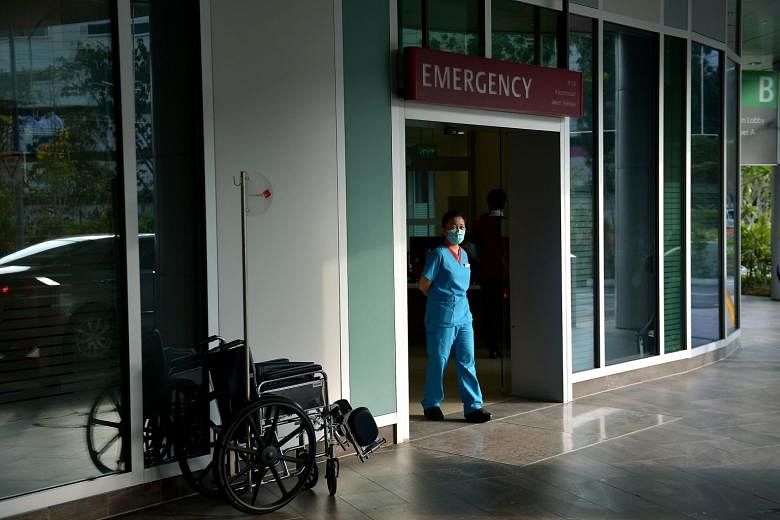Amid an online petition to protest against the Singapore Medical Council (SMC) decision to fine a psychiatrist $50,000, there have been a few myths circulating on social media that need to be corrected so that the public will not be confused when faced with a medical emergency (NUH doc fined for sharing patient's info, March 7).
In any medical emergency, there is no need to see a doctor for a referral letter to go to the accident and emergency (A&E) department of any hospital in Singapore.
Time is of the essence, and saving a life is more important.
Every doctor at the A&E is trained and will be able to attend to any casualty without referring to previous medical notes.
Similarly, there is no need for a referral letter to call the Singapore Civil Defence Force for an emergency ambulance. There are some messages circulating on social media that suggest one could otherwise be accused of making prank calls. This is not true.
Maintaining patient confidentiality may not appear to be important. But all doctors are trained to safeguard all their patients' secrets during their undergraduate days in medical school. This is found in the Hippocratic Oath as well as the SMC pledge, which all new doctors in Singapore are required to recite and abide by before they are accepted into the fraternity.
Ultimately, this is to build and maintain absolute trust between the doctor and the patient.
With the trust developed in the relationship, the patient will benefit from the advice and management prescribed.
The information kept by the practitioners and the institution belongs to the patient.
There are proper and lawful ways to obtain the information. Generally, it requires only a simple consent from the patient or his guardians.
Hence, it is prudent for a patient to consider signing a Lasting Power of Attorney with the Public Guardian Office or, in the instance of a person with special needs, a court-appointed deputy to act on his behalf early.
I hope this helps the public in any emergency situation.
Leong Choon Kit (Dr)

